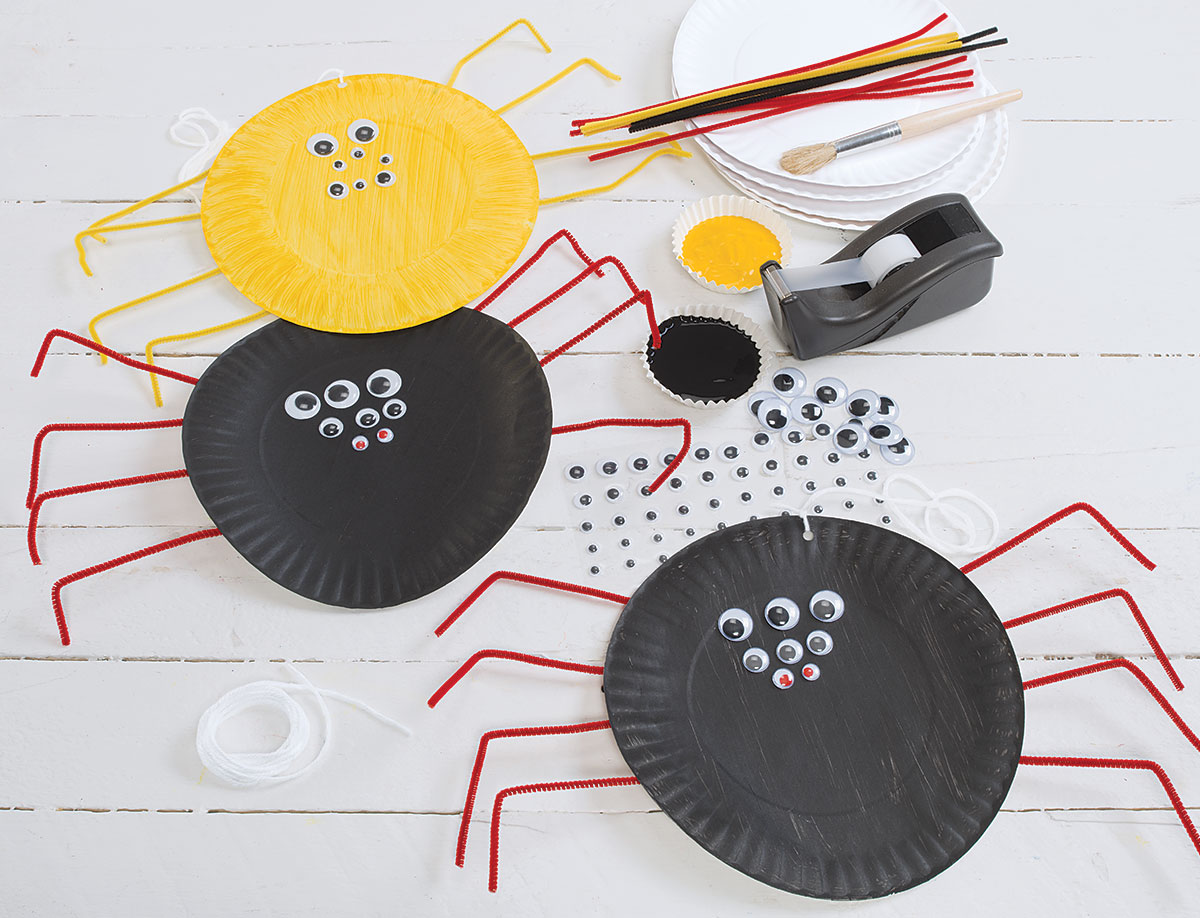
Menu
- Home
- Paper Plate Spiders Creative Activity
paper plate spiders


intro:
After this activity, you'll have a fun new friend to hang with! Children can practice and express their creativity making these simple spiders. A terrific process art activity, and a great opportunity to learn about a marvelous creature.
set up ideas:
Save yourself the hassle of gluing the eyes on by gathering self-adhesive eyes instead. Have plenty on hand, some spiders have a lot of eyes!
After this activity, you'll have a fun new friend to hang with! Children can practice and express their creativity making these simple spiders. A terrific process art activity, and a great opportunity to learn about a marvelous creature.
set up ideas:
Save yourself the hassle of gluing the eyes on by gathering self-adhesive eyes instead. Have plenty on hand, some spiders have a lot of eyes!
let's get started
To make these creepy crawlies, you'll need to gather paper plates, paint, wiggly eyes, pipe cleaners and yarn. To get children thinking about how they'd like to create their spiders, you might wish to show some images of different species of spider.
step 1
Paint the entire paper plate and allow it to fully dry. Encourage the children to use big, broad strokes to cover the plater faster.
Paint the entire paper plate and allow it to fully dry. Encourage the children to use big, broad strokes to cover the plater faster.
step 2
Cut four pipe cleaners in half to serve as the legs of the spider. Glue or tape the pipe cleaners to the back of the paper plate and bend them to form leg shapes.
Cut four pipe cleaners in half to serve as the legs of the spider. Glue or tape the pipe cleaners to the back of the paper plate and bend them to form leg shapes.
step 3
Glue wiggly eyes to the front. Spider species vary in the number of eyes that they have, so get creative and add as many as you like.
Glue wiggly eyes to the front. Spider species vary in the number of eyes that they have, so get creative and add as many as you like.
step 4
Use a hole punch near the top to create a hole. Then, tie a string of yarn through the hole to hang your new spider friend.
Use a hole punch near the top to create a hole. Then, tie a string of yarn through the hole to hang your new spider friend.
Spiders use various forms of silk webbing to travel, protect their eggs and catch prey. Sometimes spiders will release a long single thread of webbing that they will use to travel down and then pull themselves back up. So, when you thread the hole to hang your spider, the yarn is like the spiders webbing!
There are all sorts of spiders in varying sizes, shapes, colors and textures—many spiders are quite fuzzy! You might use pom-poms or felt to add a bit of softness to your spider.
 Follow Up Activity
Follow Up ActivityWhen everyone has created their spider, use netting, yarn or another material to create a large web to hold them all. Together you'll have one large spider family!

